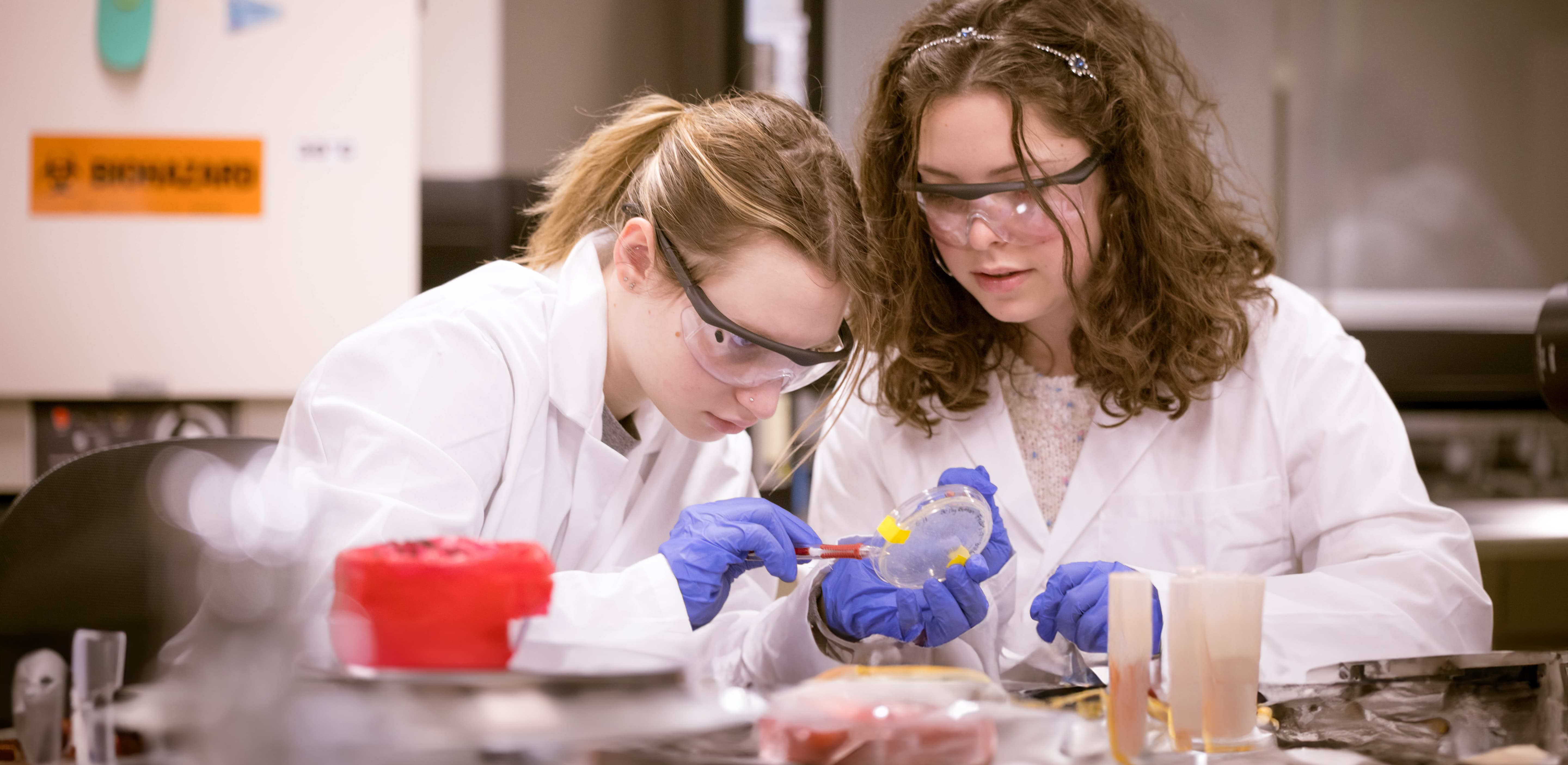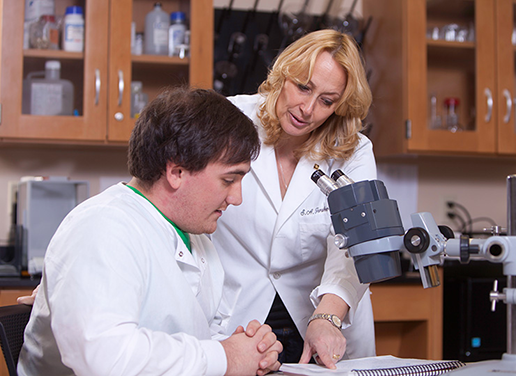Exploring the Intersection of Biology and Mind
The Western New England University Neuroscience major integrates knowledge from psychology, biology, engineering, and chemistry. Neuroscientists work toward a common goal: to understand the structure, development, and function of the nervous system. In this research-rich environment that supports a curriculum steeped in scientific investigation, students work with faculty in all stages of research, including project design, data collection, and results reporting.
Why Choose Neuroscience?
Neuroscientists use an ever-increasing range of tools to examine the molecular, structural, physiological, cognitive, and behavioral aspects of the brain and nervous system. Through their research, neuroscientists are able to describe the normal function of electrical tissues, including the human brain, which then allows them to understand and find ways to prevent or cure many devastating neurological and psychiatric disorders.





